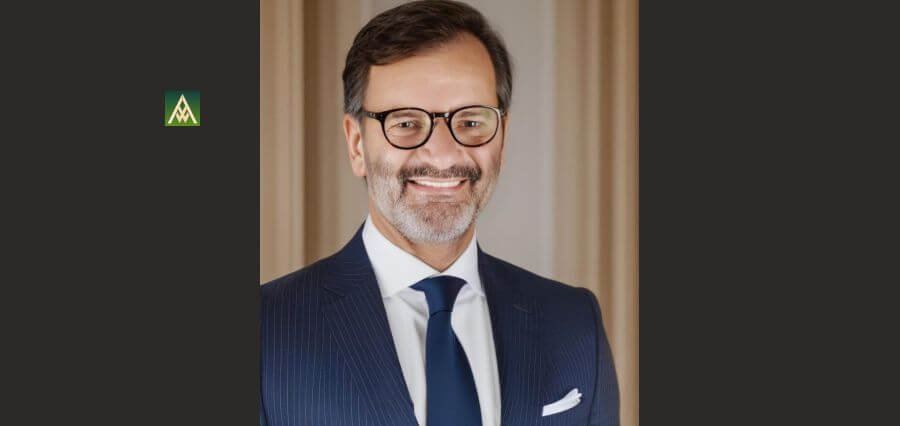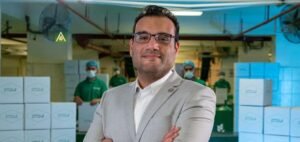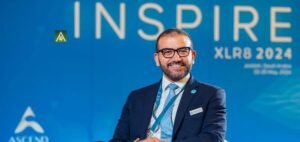In an industry often criticized for its hierarchical structures and environmental impact, the Oil & Gas sector faces a pressing need for innovative leadership and sustainable practices. Alessandro Vavassori, Owner and CEO of INTECS (Industrial Technology Services), is rising to this challenge, redefining success in this demanding industry.
Vavassori’s approach shatters traditional corporate structures. At INTECS, the concept of “employees” doesn’t exist – instead, there are colleagues with varying responsibilities. This egalitarian model nurtures a culture of collaboration and creativity that has become INTECS’ signature strength.
The company’s impact reaches beyond its internal dynamics. From plant construction to maintenance, INTECS optimizes resources and generates opportunities, establishing itself as an industry leader. Vavassori’s vision extends further, viewing his role as a catalyst for positive change in both the industry and the communities where INTECS operates.
INTECS demonstrates that profitability and responsibility can coexist harmoniously in the Oil & Gas sector. By fostering a professional yet friendly environment, Vavassori has created a company that not only meets industry demands but also addresses its critical challenges head-on.
As the energy sector evolves, Vavassori and INTECS are pioneering a new path, showing that with visionary leadership and strong values, businesses can thrive while benefiting both people and the planet. In an industry primed for transformation, his innovative approach may well be the blueprint for the future of Oil & Gas.
Below are the interview highlights:
Could you please give a brief introduction on your company and its inception story?
INTECS Industrial Technology Services, the company behind my development, was founded in 2022 only by a group of Skilled operators and staff, coming from different past experiences from many different companies in the field of Oil & Gas and from many different countries as well.
The goal was to create a services company, where the target was not the turnover, but the quality of the service and the quality of the persons of INTECS, making always the client satisfied and happy to attend the financial commitments taken with us INTECS.
What are the biggest challenges facing the Arab oil and energy sector today, and how are you working to address them?
The Arab oil and energy sector faces several challenges including fluctuating oil prices, geopolitical instability, the global shift towards renewable energy and the need for technological advancements. Addressing these challenges involves diversifying energy portfolios, investing in renewable energy, enhancing energy efficiency, adopting advanced technologies.
The Arab countries, are improving very well the quality of the life in their countries, investing most of their profit in the infrastructures, in the Tourism, in the attractions and in the very good relationship with all other countries.
That’s why the Arab countries are becoming the areas where is perfect to live, to work and do business.
How has the global shift towards renewable energy sources impacted your country’s oil and energy strategies, and what steps are being taken to adapt?
The global shift towards renewable energy has prompted many Arab countries to reevaluate their oil and energy strategies. Steps being taken include investing in renewable energy projects such as solar and wind, implementing policies to support energy transition and developing infrastructure to integrate renewable sources into the energy mix. Additionally, efforts are being made to reduce carbon emissions and improve energy efficiency.
Efforts used by the Arab Countries now, are huge and their policy and their plans for the future are absolutely impressive.
What role do you see natural gas playing in the future energy mix of Arab countries, and how are you working to develop this resource?
Natural gas is expected to play a significant role in the future energy mix of Arab countries due to its lower carbon emissions compared to oil and coal. Developing this resource involves investing in exploration and production, building infrastructure such as pipelines and LNG terminals and forming partnerships with international companies to access advanced technologies and expertise.
This is what the Arab countries are doing in a very perfect and professional way.
How are you working to attract foreign investment and technology to modernize and expand your country’s oil and energy infrastructure?
What the Arab Countries are doing, is to attract foreign investment in addition to use their own financial resources. The Collaboration with international firms, participation in global energy forums and showcasing successful projects also helping attract investment.
Additionally, the investments Arab Countries are doing in research and development, demonstrating the commitment to innovation and modernization.
What measures are being taken to improve energy efficiency and reduce carbon emissions in the Arab oil and energy sector?
Measures to improve energy efficiency and reduce carbon emissions include implementing stricter regulations, adopting advanced technologies for better resource management, investing in renewable energy and promoting energy conservation practices.
Carbon capture and storage (CCS) technologies and transitioning to cleaner fuels such as natural gas are also part of the strategy.
How are you working to develop a skilled and knowledgeable workforce to support the future growth of the Arab oil and energy sector?
Developing a skilled workforce involves investing in education and training programs, partnering with academic institutions and providing opportunities for professional development.
Encouraging STEM (Science, Technology, Engineering and Mathematics) education and offering scholarships and internships in the energy sector can also help build a knowledgeable workforce. The motivation to the people is first of all to give the right information.
What role do you see renewable energy sources such as solar and wind playing in the future energy mix of Arab countries, and what investments are being made in these areas?
Renewable energy sources like solar and wind are expected to play a crucial role in diversifying the energy mix and reducing carbon emissions. Investments are being made in large-scale solar and wind projects, research and development, creating supportive policies and incentives for renewable energy adoption.
These efforts aim to harness the region’s abundant natural resources and reduce dependency on fossil fuels. Even here, all the Arab Country are investing already a lot and they are improving constantly.
How are you working to ensure the long-term sustainability of the Arab oil and energy sector, and what measures are being taken to diversify the economy and reduce dependence on oil revenues?
Ensuring long-term sustainability involves diversifying the economy through investments in non-oil sectors such as technology, tourism and manufacturing. Developing renewable energy projects, improving energy efficiency and encouraging innovation are also crucial.
Strategic planning and implementing policies that support economic diversification and sustainability are essential measures being taken. It is what the Arab Countries started to do since long time.
How are you working to engage with and address the concerns of local communities impacted by oil and energy projects, and what measures are being taken to ensure that the benefits of these projects are shared equitably?
Engaging with local communities involves open communication, conducting impact assessments and implementing Corporate Social Responsibility (CSR) initiatives. Ensuring that the benefits of oil and energy projects are shared equitably includes creating job opportunities, investing in local infrastructure, and supporting community development programs.
Collaboration with community leaders and stakeholders is also important to address concerns and ensure mutual benefits.




